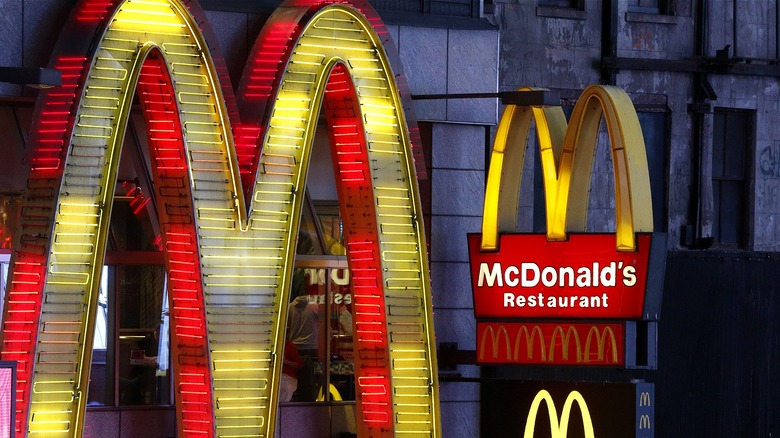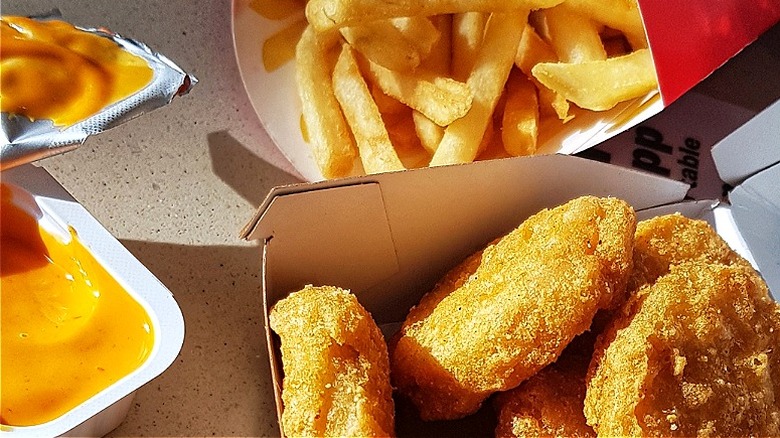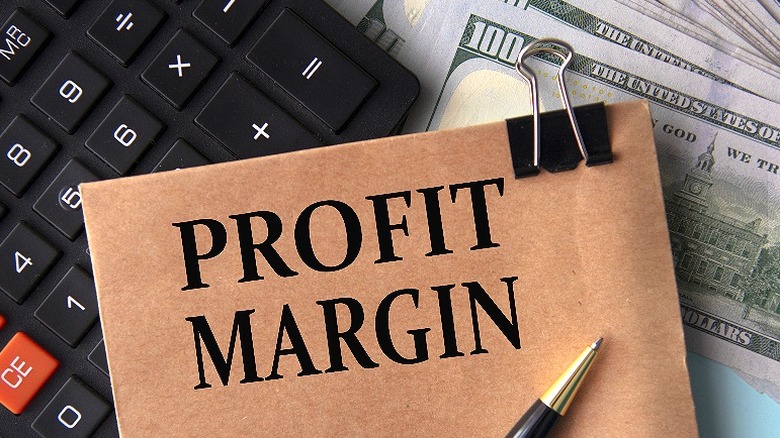Some McDonald's Locations Actually Charge For This Condiment
One thing you probably take for granted when you go out to eat, whether you're getting take-out from a fast-food joint or sitting down at a five-star restaurant, are the condiments. They aren't something you're probably used to paying for, or would want to if you had a choice, but some McDonald's customers are finding that they're getting charged for those little packets of dipping goodness and understandably wondering why.
While many customers understand the cost of doing business, there are just as many who seem to be upset about it, with social media posts popping up from surprised customers who don't want to pay extra for what they feel should be free. This doesn't appear to be widespread among the chain — as McDonald's franchises are individually owned — but enough customers are reporting having to pay 25 cents at their McDonald's when they ask for extra sauce packets that the world is starting to take notice.
And it isn't just the cost of condiments that seems to be upsetting fast-food customers, as the cost of food in general has risen in the U.S., which seems to be impacting the spending habits of Americans. In fact, in May of 2024, McDonald's attempted to justify its rising prices amid popular belief that it's simply overcharging for food by citing a drop in sales and income in 2024 compared to 2023.
Charging for sauces isn't a franchise standard
Not all McDonald's locations are charging more for sauces, prompting curious customers to wonder why some locations choose to do it while others refrain. The answer is simple: McDonald's is a franchise chain, with the majority of its locations owned independently rather than by the corporation itself. As the company notes on its website: "McDonald's prices vary by location. Ninety percent of McDonald's restaurants are independently owned and operated by franchisees, who have the ability to set their own prices." This pricing policy would appear to apply to sauces now as well. In addition to helping offset operating costs for the franchise, this practice also helps to avoid food waste, as you're far less likely to take what you don't need or intend to use if you have to pay extra for it.
This is a logical decision for franchise owners, especially considering that opening a franchise can be quite costly. In fact, there are some that strongly advise against opening a franchise as an easy way to make money, but it's also a great way to start a business that already has a loyal customer base. But if you can weather the initial startup cost (you can expect to spend anywhere from $1.47 million to $2.64 million on a new franchise or upward of $2 million for an existing location), the profits from owning a franchise stand to be significant.
Are condiment charges bad for business?
While it's logical to assume that a certain number of sauce packets should accompany a food order, particularly ketchup when your meal comes with french fries or dipping sauces with chicken nuggets, those condiments add up to lost revenue for the fast-food franchise owners who are already struggling with waning profit margins, particularly in light of a 2024 LendingTree study that found that 62% of people report eating less fast food due to rising costs.
It's no secret that fast-food chains have been struggling in the years following the COVID-19 pandemic, which changed (maybe forever) the fast-food industry and the way we eat out. Compounding the problem are inflation, shrinkflation, and the rising costs of labor in states like California where the minimum wage for fast food workers is now $20 per hour. Restaurants across the country are facing bankruptcy, including several fast-food chains, and while McDonald's seems to be immune to this trend, creative franchise owners are having to do what is necessary (including charging for sauces, in some cases) to keep profit margins high enough to justify the cost of doing business and to provide jobs for their communities.


